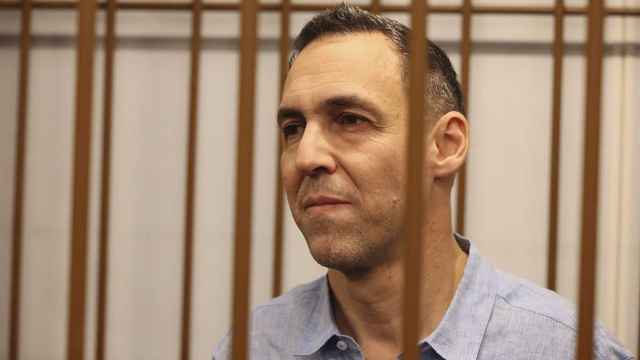Russia plans to delay its privatization program and hold on to stakes in state companies such as Rosneft for longer, a report said Monday, compounding disappointment for investors who have been pulling money from the country.
In 2010, Russia announced plans to raise $50 billion in five years from reducing its stakes in the likes of oil major Rosneft and the country's two biggest banks, Sberbank and VTB.
Russia has completed only a handful of privatizations so far, and observers are not surprised that a new timetable is in the pipeline.
"It's a little negative; you hear one thing and suddenly it changes," one trader said.
A new plan would be reviewed by the government next week and that the sale of 19.5 percent of Rosneft is unlikely to be completed before 2016, entrenching state control over the medium term, Vedomosti reported Monday.
"The original plans were always seen as overly ambitious and not likely to materialize in terms of the timing," said Alexei Zabotkin, head of investment strategy at VTB.
The new schedule "establishes a more realistic baseline," he said, adding that the last thing the government wants is to overwhelm the stock market with relentless supply of Russian equities.
The go-slow on state sell-offs would mark a victory for Igor Sechin, the Rosneft CEO and ally of President Vladimir Putin, and a setback for Prime Minister Dmitry Medvedev's market reform agenda as Russia prepares to host a major investment forum.
International CEOs and officials flying in for this week's St. Petersburg International Economic Forum will be seeking reassurance that Putin is standing by his statement a year ago that "state capitalism is not our goal."
Slow progress on reforms has contributed to investor exhaustion with Russia and more than $1.5 billion has been pulled out of Russia-focused funds this year, according to analysts' estimates.
The delay may also deal a blow to the federal budget. The Economic Development Ministry had expected the Rosneft sale to contribute to the planned 420 billion rubles ($13.28 billion) in privatization proceeds this year.
In March, however, the state property management agency Rosimushchestvo announced that those proceeds would bring only 60 billion rubles, forcing the Finance Ministry to seek other sources of revenue to keep a lid on the country's budget deficit.
Vedomosti, citing a document prepared by the property agency said privatization of other natural resources companies and banks could be revised.
The new plan, to be discussed by the government on June 27, proposes that the state keeps a controlling stake in VTB beyond 2016, the paper said. Initial plans had called for the disposal of the government's entire holding by that year.
Russia has carried out two large privatization deals in the past year or so, selling a 7.6 percent stake in Sberbank and 50.1 percent of United Grain Company.
But those deals were dwarfed by the de facto nationalization of British-Russian oil venture TNK-BP, bought in March by Rosneft in a $55 billion cash-and-stock deal through which BP raised its stake in Rosneft to 20 percent.
The plan also includes telecom company Rostelecom, which the state wants to exit by 2016, Vedomosti said. The Federal Property Agency declined comment.
A Message from The Moscow Times:
Dear readers,
We are facing unprecedented challenges. Russia's Prosecutor General's Office has designated The Moscow Times as an "undesirable" organization, criminalizing our work and putting our staff at risk of prosecution. This follows our earlier unjust labeling as a "foreign agent."
These actions are direct attempts to silence independent journalism in Russia. The authorities claim our work "discredits the decisions of the Russian leadership." We see things differently: we strive to provide accurate, unbiased reporting on Russia.
We, the journalists of The Moscow Times, refuse to be silenced. But to continue our work, we need your help.
Your support, no matter how small, makes a world of difference. If you can, please support us monthly starting from just $2. It's quick to set up, and every contribution makes a significant impact.
By supporting The Moscow Times, you're defending open, independent journalism in the face of repression. Thank you for standing with us.
Remind me later.





